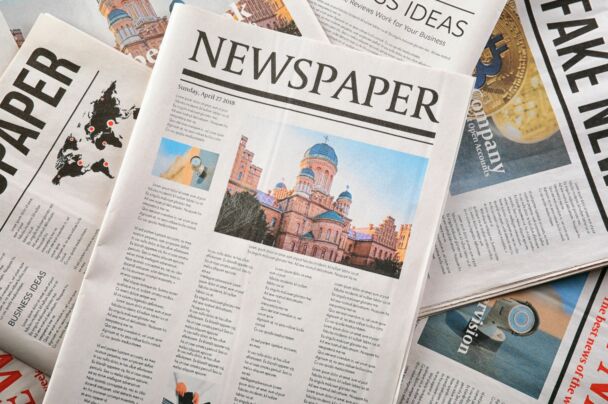Description
Teachers often want to bring current affairs and news into the classroom… but how are they supposed to do that if we are constantly surrounded by fake news, misinformation, and biases?
This course aims to empower educators with the tools to effectively integrate current affairs and news literacy into their teaching methods, overcoming the challenges posed by misinformation and biases in the media landscape. It provides comprehensive guidance on developing critical thinking, media literacy, and social and intercultural competencies among students.
With an emphasis on promoting active citizenship and ethical practices, this course fosters lifelong learning, aligning with the European Union’s focus on these essential values.
Throughout the course, participants will gain insights into critically analyzing news content, selecting credible sources, and understanding the intricacies of journalistic practices.
They will develop the confidence to approach the news with a discerning eye, encouraging their students to become well-informed and responsible citizens.
The program encourages educators to navigate through news feeds and newspapers, equipping them with the skills to evaluate information, compare various sources, and critically assess reliability.
These activities serve as a foundation for replicating engaging experiences in the classroom, cultivating students’ interest in current events, and nurturing their critical thinking abilities.
Upon completion of the program, participants will be proficient in devising, implementing, and evaluating classroom activities centered on news, relevant contemporary topics, and the dynamic nature of the information industry.
They will be equipped with the necessary skills to encourage students’ active participation in democratic processes, fostering social and civic engagement.
What is included
Learning outcomes
The course will help the participants to:
- Navigate and analyze the daily influx of news effectively;
- Develop critical thinking skills to discern editorial choices in news presentations;
- Identify and extract teachable elements from current news content;
- Create engaging lesson plans focused on contemporary affairs and news;
- Foster students’ critical thinking abilities for active participation in societal and democratic
processes; - Enable educators to instill an understanding of the European Union’s context and values.
Tentative schedule
Day 1 – Embracing news literacy and citizen participation
- Introduction to the course, the school, and the external week activities;
- Icebreaker activities;
- Presentations of the participants’ schools;
- Understanding the dynamics of news consumption and its implications for active citizenship and
civic engagement; - What is news?
- Analyzing the role of media literacy in fostering a participatory democracy and ethical practices.
Day 2 – Navigating Media terrain and developing critical thinking
- Recognizing biases in news reporting and fostering ethical journalism practices in the classroom;
- How have the internet and social media changed our information system?
- Cognitive biases in the reader and the new era of clickbait.
Day 3 – Mastering ethical journalism and fostering civic engagement
- Integrating lessons on civic engagement and active citizenship into the curriculum;
- Cultivating critical thinking skills and promoting intercultural competencies among students
through media literacy; - Understanding the impact of media consumption on civic engagement and social responsibility.
Day 4 – Engaging with current affairs and promoting civic awareness
- Encouraging students to engage with contemporary issues and develop a sense of social responsibility within the community;
- Communicating through words and images;
- How to navigate the news from unfamiliar worlds;
- Language: the words we use to give news;
- Communication: The pictures we use to give news;
- Exploring the European Union’s values and historical heritage to enhance civic awareness.
Day 5 – Designing inclusive lessons for unity and diversity
- Developing inclusive lesson plans that promote unity and celebrate diversity among students;
- Bring the news to your classroom;
- Controversial topics: how and when to bring them into class;
- Create activities to foster exchange and conversations;
- How to run, debrief, and evaluate the activities you want to bring to your classroom;
- Evaluating the impact of lesson plans on students’ understanding of the European Union’s values and principles.
Day 6 – Course closure and cultural activities
- Course evaluation: round-up of acquired competencies, feedback, and discussion;
- Awarding of the course Certificate of Attendance;
- Excursion and other external cultural activities.




